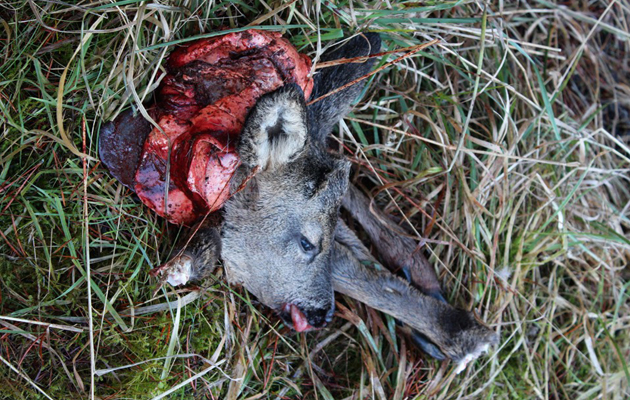Poaching is still biggest wildlife crime in Scotland
Government warns that crimes against pearl mussels and raptor persecution are just as serious as poaching

Poaching is still Scotland’s most common wildlife crime problem by a significant margin, but less frequently recorded crimes against pearl mussels and birds of prey rank highly because of the broader environmental damage they cause, according to a report published by the Scottish Government last week. The Wildlife Crime in Scotland annual report is the second of its kind and follows on from the Scottish Government’s 2012 report.
Due to the way the data is gathered, not all statistics can be effectively compared with previous years’ figures, but some trends are evident.
Crimes involving salmon and freshwater fisheries have overtaken those involving deer and hares or rabbits in the past few years, to become the most numerous. Figures show that crime in salmon and freshwater fisheries made up more than 40 per cent of wildlife offences in 2013 — up by almost a third compared with 2012.
Recorded crimes against badgers fell slightly, but poaching and coursing incidents increased, as did incidents involving pearl mussels and raptor persecution.
The report notes geographical trends in some crimes: in the north there was a “significant volume of deer poaching”; while coursing with dogs was nationwide, but particularly affected the south.
The report gives poaching a high priority due to the number of incidents recorded and also because of the level of cruelty to the fish and animals involved, as well as the potential damage to river systems, farmland and property.
A spokesman for the Scottish Gamekeepers Association (SGA), a member of the Partnership For Action Against Wildlife Crime in Scotland (PAWS), said: “Poaching, in its varying forms, is a growing problem and is difficult to stamp out. What has been more worrying in recent times, is the level of sophistication involved. Gamekeepers work effectively at local level with police, and lots of our members are involved in rural watch schemes, as are the SGA.
“We also last year signed a memorandum of understanding with police to help protect rivers with freshwater pearl mussel populations. Illegal fishing is still an issue but environmental pollution can destroy whole colonies, so any protection gillies can give them is basically helping police the elements that can be policed.”
As well as working with gamekeepers and other members of PAWS, the poaching and coursing priority group has been looking at a ways of raising public awareness and anti-poaching vigilance, including setting up neighbourhood watch schemes, working with the media and with potential buyers of fish and meat.
The figures suggest this is beginning to have an effect. Increased public consciousness of the need to report suspicious circumstances is cited as a possible reason for a steady increase in the number of wildlife cases referred to SAC Consulting (part of Scotland’s Rural College) for postmortem examination over the past five years.
Other priority areas include combating the illegal persecution of badgers and bats, and fighting against trade in endangered species. Two further priority areas of particular note are incidents involving freshwater pearl mussels and raptor persecution.
In his ministerial foreword to the report, Scotland’s Environment Minister Paul Wheelhouse, issued a warning to anyone involved in the illegal persecution of birds of prey or crimes against pearl mussels.
Mr Wheelhouse, who is also chairman of PAWS, said: “While poaching is clearly the most commonly recorded offence, crimes against pearl mussels and birds of prey remain the most serious in terms of damage to Scotland’s natural environment.”
The minister also warned about the new regulations introduced to stamp out raptor crime. He said: “I have been as clear as I can, that if these new measures are insufficient to eradicate persecution, I will take whatever further steps are necessary to deal effectively with wildlife crime.”








